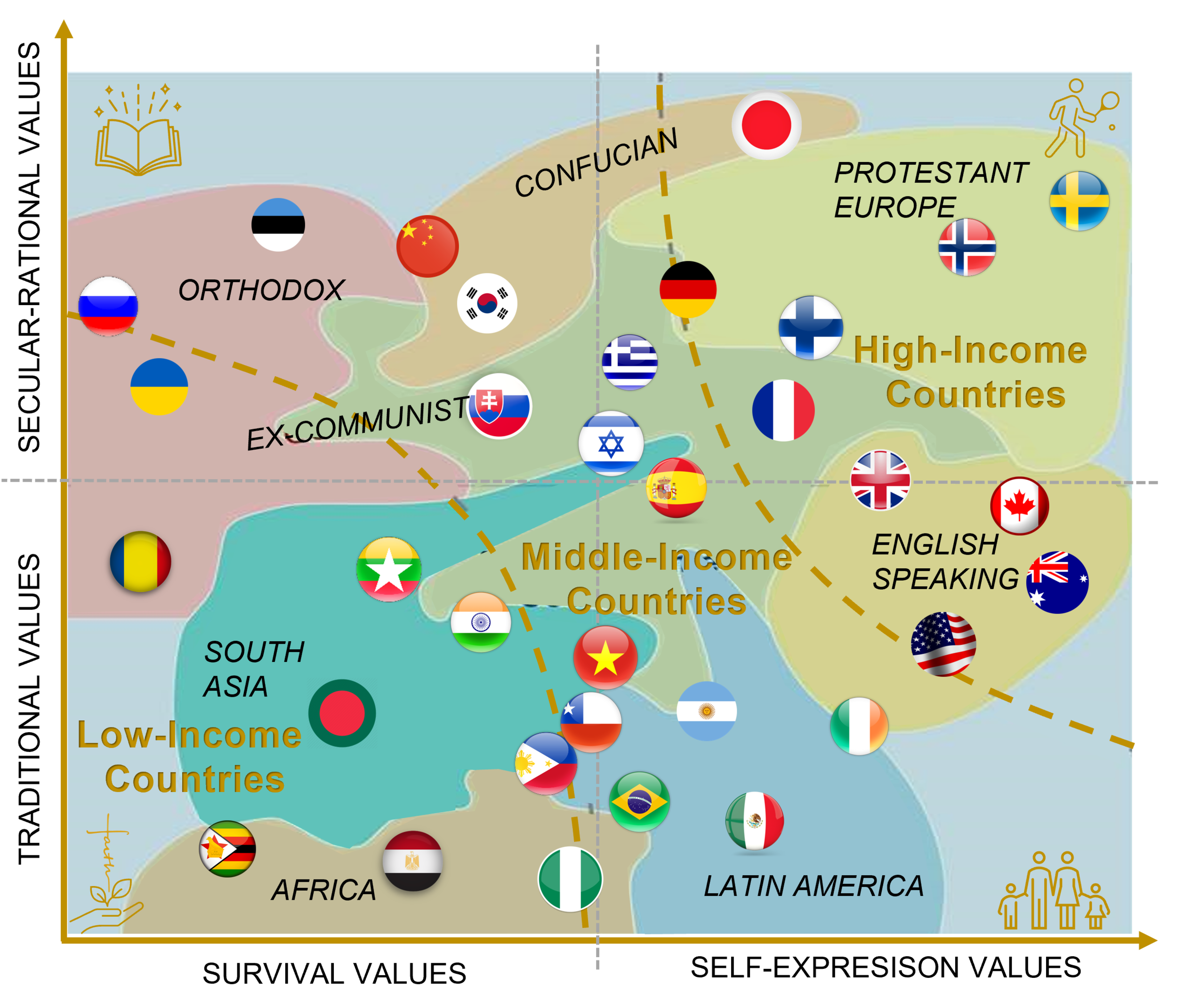world value survey
Analysis of WVS data made by political scientists Ronald Inglehart and Christian Welzel (1981) asserts that there are two major dimensions of cross cultural variation in the world, explaining 70% of all values. These are valid for both men and women.
Y-axis: Traditional values versus Secular-rational values and
X-axis: Survival values versus Self-expression values.
The global cultural map shows how scores of societies are located on these two dimensions. Moving upward on this map reflects the shift from Traditional values to Secular-rational and moving rightward reflects the shift from Survival values to Self–expression values.
Believes Play a Vital Role
The WVS has over the years demonstrated that people's beliefs play a key role in economic development, the emergence and flourishing of democratic institutions, the rise of gender equality, and the extent to which societies have effective government.
Traditional values emphasize the importance of religion, parent-child ties, deference to authority and traditional family values. People who embrace these values also reject divorce, abortion, euthanasia and suicide. These societies have high levels of national pride and a nationalistic outlook.
Secular-rational values have the opposite preferences to the traditional values. These societies place less emphasis on religion, traditional family values and authority. Divorce, abortion, euthanasia and suicide are seen as relatively acceptable.
Survival values place emphasis on economic and physical security. It is linked with a relatively ethnocentric outlook and low levels of trust and tolerance.
Self-expression values give high priority to environmental protection, growing tolerance of foreigners, gays and lesbians and gender equality, and rising demands for participation in decision-making in economic and political life.
Money Moves Masses
As the societies get richer, they leave the traditional pillars in life behind and move into so called liberation, science, and self-indulgence.
There are however a few good thing about more money in a system; the level of trust increases, corruption reduces, and the speed of progress is escalating.
The intriguing thing with culture, is that no culture is above or below the other culture. No one can say that ‘my culture’ is better than your culture. It is utterly fascinating, and such a rich area to work with. Knowing the cultural traits in the markets you operate, is valuable, and is hence a solid base to generate exponential growth. Having lived through various of cultures, we could write a funny book about all the blunders throughout the years. There is however one common denominator for acceptance we did learn, and that is humbleness.
Two questions to think about
1) It is possible that a society (or a group of people) can be so tolerant, that it becomes intolerant?
2) Is it possible that a society (or a group of people) can be so including, that it becomes excluding?
Perhaps two provocative questions, but people often feel that the most tolerant and inclusive societies, often tend to be intolerant and excluding. The opposite goes for the so called conservative societies that have a high degree of traditional mindset. These so called excluding and intolerant societies are the most inclusive, tolerant and friendly places, open for people thinking differently.
The answer lies perhaps in the level of respect of the individual, built upon faith-values in the respective societies?
Well; these are two questions to be sensitive about, as the world is about to reopen after the global pandemic lockdown.


